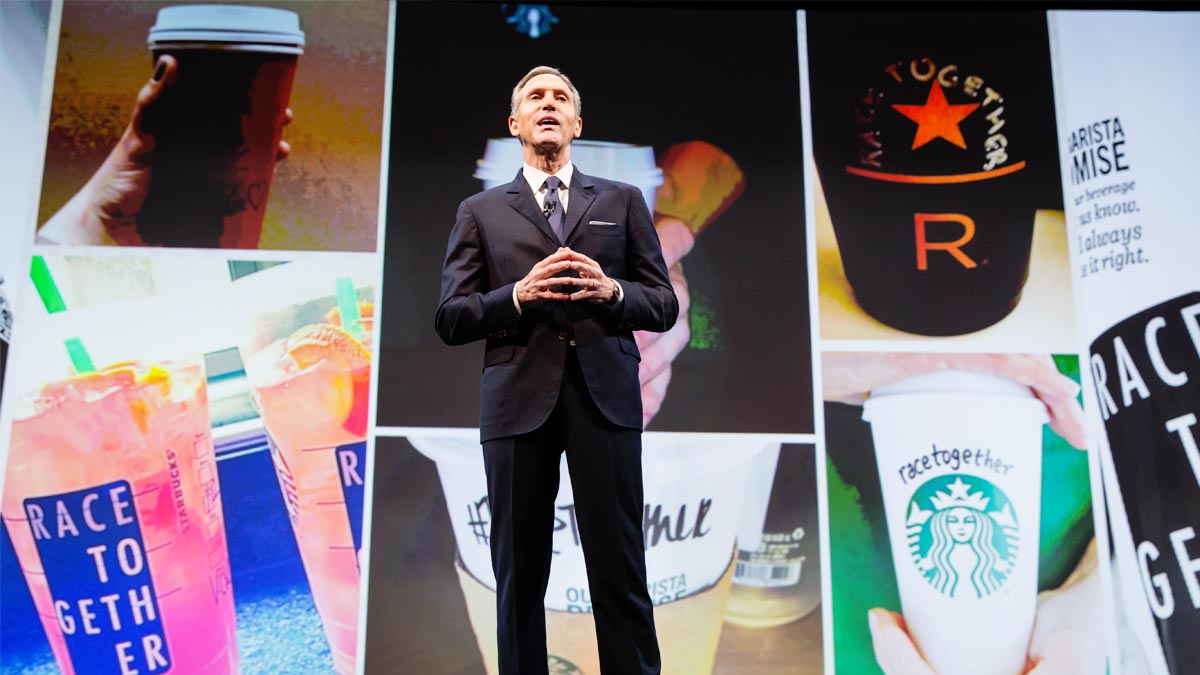Tag Archive for: ann tenbrunsel

2016 Collaborators in the News: A Year of Many Achievements
Blog 2016 was a year of many achievements for our growing collaborator network. We invite you to browse a highlight list of the research, articles, appearances and talks that helped advance our mission and promote a greater understanding of ethics, decision making, and ethical systems design.
2016 was a year of many achievements for our growing collaborator network. We invite you to browse a highlight list of the research, articles, appearances and talks that helped advance our mission and promote a greater understanding of ethics, decision making, and ethical systems design.
Browse our collaborators and their highlights and achievements from this year >>

Twice as Nice: On ethics teaching
Blog Can people be taught to be more ethical? While some may say teaching ethics is a recipe for continued headaches and an ongoing, almost Sisyphus-like journey to ensure lessons are absorbed, a new study has positive implications for both academics and practitioners who have dedicated their work to engaging others in ethics education, training and programs.
Can people be taught to be more ethical? While some may say teaching ethics is a recipe for continued headaches and an ongoing, almost Sisyphus-like journey to ensure lessons are absorbed, a new study has positive implications for both academics and practitioners who have dedicated their work to engaging others in ethics education, training and programs.
The as yet unpublished study, covered by Ben DiPietro in The Wall Street Journal’s “Morning Risk Report” and presented at the recent Academy of Management conference, spotlights a key training tactic that will greatly increase ethics knowledge retention and, in the long term, may possibly reduce misconduct.
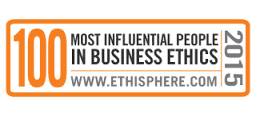
Ethical Systems Lands 8 of the Top 100 Most Influential in Business Ethics
Blog Each year, Ethisphere recognizes 100 individuals that have made a material impact in the world of business ethics through their annual 100 Most Influential People in Business Ethics list.
Each year, Ethisphere recognizes 100 individuals that have made a material impact in the world of business ethics through their annual 100 Most Influential People in Business Ethics list.
Ethical Systems collaborators have long been featured on this prestigious list. This year, however, is the first we have had 8 of our distinguished leaders included at one time.
 https://www.ethicalsystems.org/wp-content/uploads/2015/12/Head-shots_MONTAGE.jpeg
1200
739
Jeremy Willinger
https://ethicalsystems.org/wp-content/uploads/2020/04/ES-logo-final-white.gif
Jeremy Willinger2015-12-11 14:48:052020-03-26 16:58:122015 Collaborators in the News: A Year of Many Achievements
https://www.ethicalsystems.org/wp-content/uploads/2015/12/Head-shots_MONTAGE.jpeg
1200
739
Jeremy Willinger
https://ethicalsystems.org/wp-content/uploads/2020/04/ES-logo-final-white.gif
Jeremy Willinger2015-12-11 14:48:052020-03-26 16:58:122015 Collaborators in the News: A Year of Many Achievements
Featured Collaborator for December: Ann Tenbrunsel
BlogInterview with Ann Tenbrunsel, the David E. Gallo Professor of Business Ethics at the Mendoza School of Business at the University of Notre Dame, and co-author of Blindspots
What are your main areas of research?
My work has focused on why individuals behave in ways that deviate from their values and are not aware that they are doing so. Within that domain, I have focused on how the situation leads to "ethical fading" in which people do not realize they are in fact presented with an ethical decision. If you don't realize you are faced with an ethical dilemma, then your ethical values and principles wont be part of the decision process. I have examined individual level factors-- temptation, forecasting errors, construal level, moral self-image and power-- as well as organizational level factors-- business framing, sanctions,perceived retaliation, organizational cultures of justice and respect, formal and informal communications-- that may influence unethical behavior.
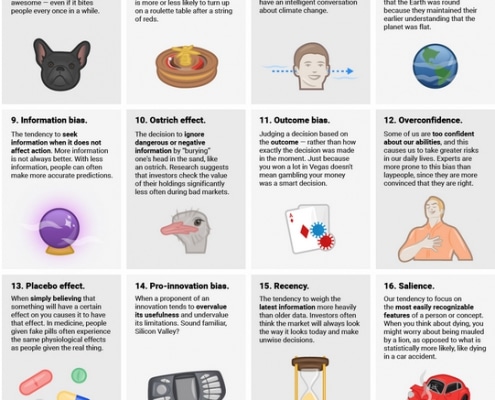
Biases and Decision Making
Blog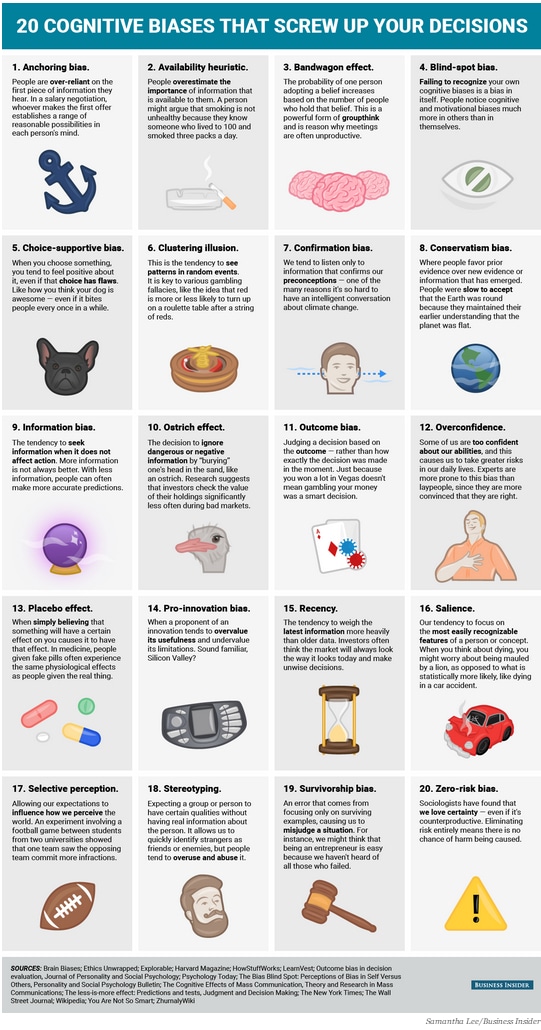 From the things we say to the actions we take each day, our world- and that of business- is comprised of thousands of decisions, both big and small. How we come to make those decisions is the result of intuition and analysis and, in most cases, influenced by biases that we may or may not be aware of.
From the things we say to the actions we take each day, our world- and that of business- is comprised of thousands of decisions, both big and small. How we come to make those decisions is the result of intuition and analysis and, in most cases, influenced by biases that we may or may not be aware of.
We know about blind spots in decision making, mostly because of the work of ES collaborators Max Bazerman and Ann Tenbrunsel. A recent graph published in Business Insider: Australia, and included below, depicts additional biases that all would be wise to learn and attempt to obviate when analyzing ideas and programs.
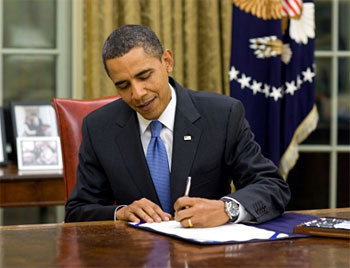
An Executive Order Promoting Behavioral Science
Blog As we have long said, behavioral sciences are the key to unlocking better decision making, from study halls to the halls of power. This week, the White House echoed our view via an Executive Order outlining that behavioral insights be used to better serve the American people. What began as a nudge, is now a full-on push.
As we have long said, behavioral sciences are the key to unlocking better decision making, from study halls to the halls of power. This week, the White House echoed our view via an Executive Order outlining that behavioral insights be used to better serve the American people. What began as a nudge, is now a full-on push.
Ethical Systems praises this initiative as a major step towards not only making behavioral science more widespread but also in advancing the incorporation of ethical system design in business. When businesses adopt these systems, research shows their employees are happier, more productive and, as a result, the business is more profitable.

Testing, Testing: Drawing Conclusions From Test Environments
Blog One challenge identified in academic literature on behavioral ethics and business is finding practical applications for the lessons learned from test environments. All of us at Ethical Systems, including our collaborators and partners, are working on how to best leverage these findings.
One challenge identified in academic literature on behavioral ethics and business is finding practical applications for the lessons learned from test environments. All of us at Ethical Systems, including our collaborators and partners, are working on how to best leverage these findings.
This challenge is succinctly presented by Donald C. Langevoort of Georgetown University in a recent article about behavioral ethics and behavioral compliance. As he points out, the lessons from behavioral ethics are intuitive and while the outcomes aren't necessarily predictable, they are often unsurprising. It makes sense, for example, that 'just in time' communications improve ethical decision-making because the reminder of the moral fallout of one's choices become prominent. In another example, Langevoort describes the concept of ethical blind spots- as popularized by two ES collaborators, Max Bazerman and Ann Tenbrunsel- distorting good judgment and sensible decision making.

Navigating the Amazon: Workplace Culture and Ethics
Blog While talk in August can normally drift to Labor Day vacation plans and how to brew the perfect pitcher of iced tea, a different sort of discussion began to surface in offices (and backyards) across America: that of workplace culture and the different extremes that workers at Amazon report as the norm.
While talk in August can normally drift to Labor Day vacation plans and how to brew the perfect pitcher of iced tea, a different sort of discussion began to surface in offices (and backyards) across America: that of workplace culture and the different extremes that workers at Amazon report as the norm.
The New York Times article that started it all, "Wrestling Big Ideas in a Grueling Workplace," provided an eye-opening look into the management practices, feedback loops and performance measurement metrics at Amazon, eliciting both accolades and acrimony from current and former employees. After much debate, the dust settled at a realization that the intensity is both a blessing and a curse and tailored for only certain kinds of personalities. An overarching theme was that burnout is common and, to a certain extent, expected.



